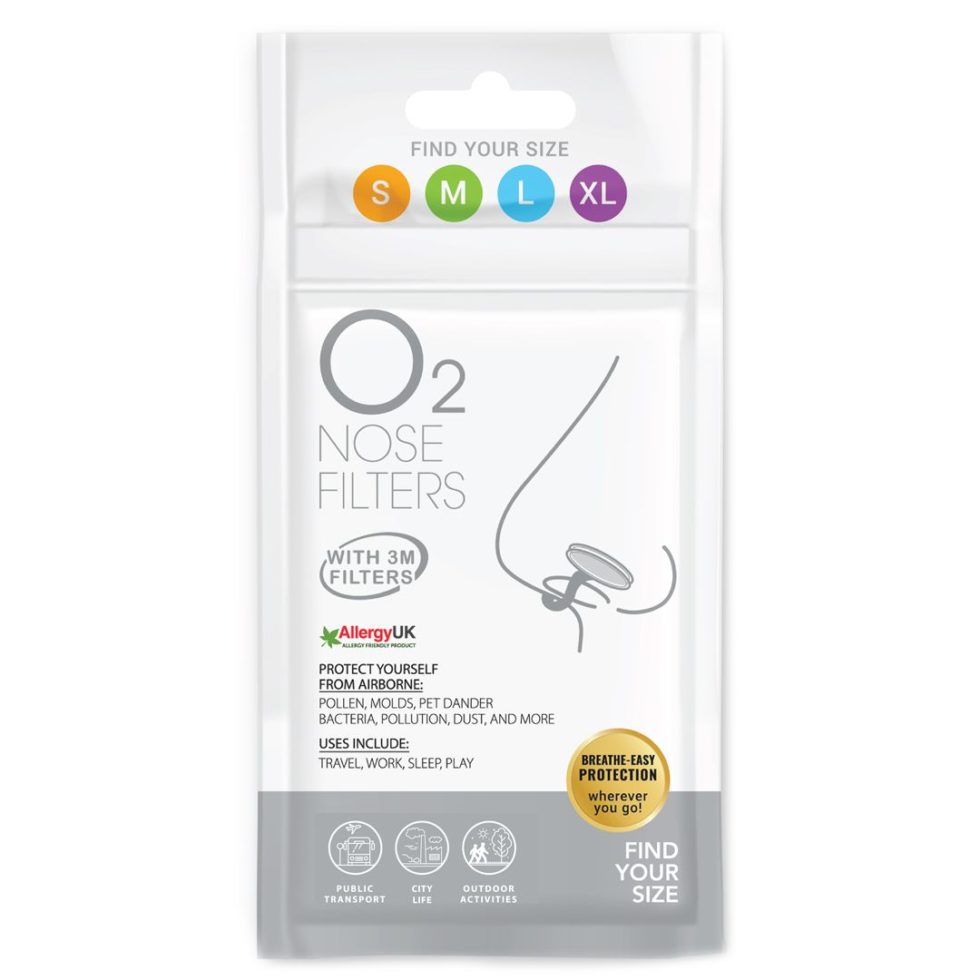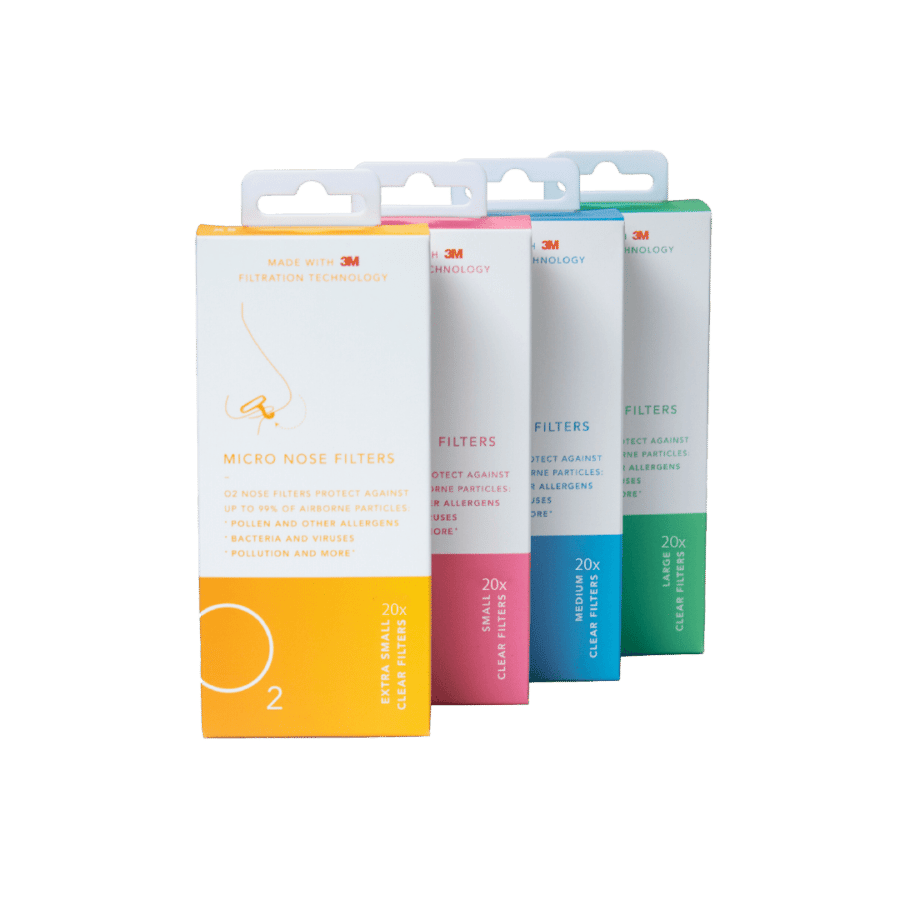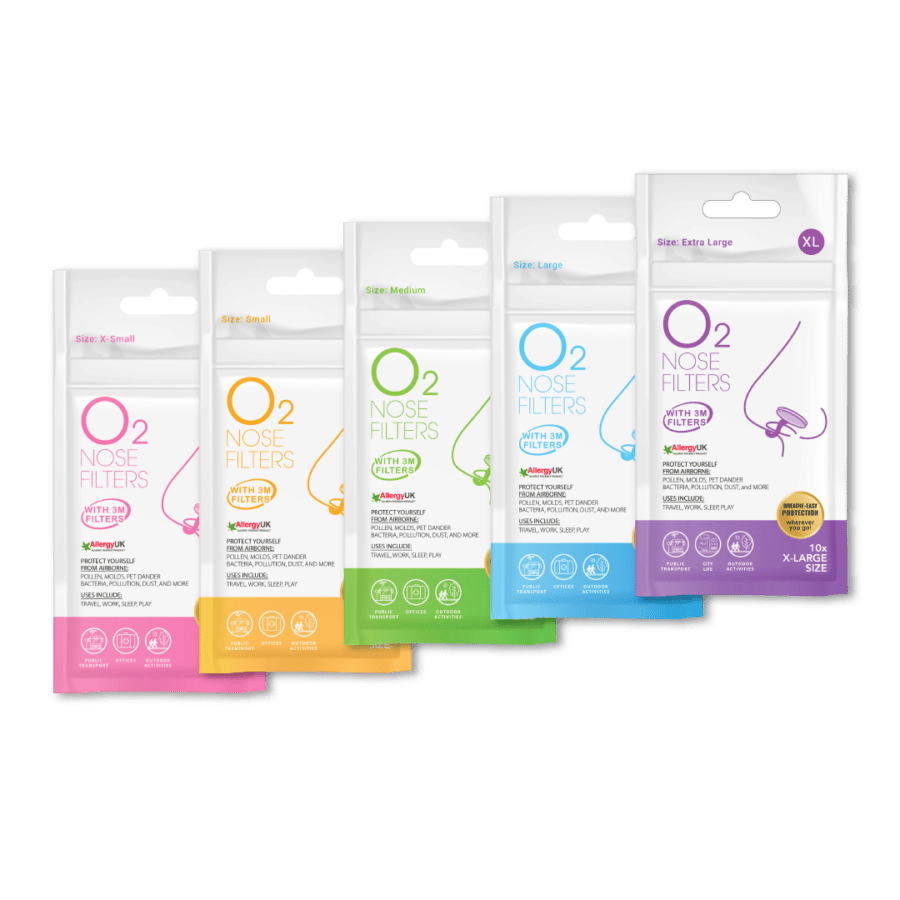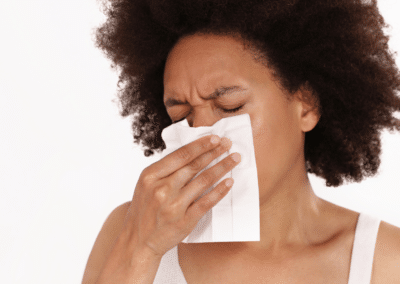Beyond just being highly uncomfortable, dry nasal passageways can lead to headaches and the increased frequency of a bloody nose. To cure an irritated dry nose, first you must understand what is causing your sinuses to react in such an undesirable way. Below, we explain the causes, symptoms, treatments, and preventable measures you can take to soothe your nasal passage ways and ease your dry nose symptoms.
Dry Nose Causes
A dry nose is generally caused by a lack of mucus production in the sinuses. When explored deeper, medical experts hypothesize several possible reasons as to why one’s sinuses may stop producing mucus, such as:
- Allergies (Click here to read our article on Hay Fever)
- A Cold
- Environmental conditions, such as living in a dry climate
- Poor air quality, such as smoke in the air
- Blowing your nose too often
- Overusing certain medications, such as antihistamines and decongestants
While most people experience dry nasal passages due to one of the causes above, however, some individuals who undergo sinus surgeries may develop Atrophic Rhinitis. Being a rare condition that causes chronic nasal dryness and crusting, your sinuses may feel blocked when they’re actually not. Unfortunately, there isn’t a cure for Atrophic Rhinitis, although certain treatments such as antibiotic and moisturizing ointments can minimize symptoms.
Dry Nose Symptoms
Medically termed as Rhinitis Sicca, this defines individuals who experience dry nasal passages caused by common causes such as allergies or a cold. Besides the uncomfortable feeling of having a dry nose, rhinitis sicca is generally harmless in the long run. To determine that your dry nose Is not actually atrophic rhinitis, look out for the following symptoms of rhinitis sicca:
- Infrequent or common nosebleeds (Click here to read our article on nose bleeds)
- Nasal congestion or inflammation
- Headaches
- Redness of the nose
- A loss of taste or smell
- Itching or burning of the nose
- Scabbing in the sinuses
Dry Nose Treatments
Remedying a dry nose usually means taking steps to restore moisture in your sinuses so that the membranes produce more mucus. Fortunately, simple home remedies can improve rhinitis sicca in most cases, such as:
- Purchase a home humidifier, which is a machine that adds moisture to the air, to keep your mucus membranes moist. Sleeping with your humidifier on should help your chances at waking up to clear nasal passages.
- Aim to drink more water in an attempt to thin out your mucus. Besides just being overall beneficial to your health, drinking water helps reduce the likelihood of suffering from a clogged nose.
- Avoid picking at your nose or sticking your fingers up your nasal passages.
- If possible, avoid dry, dusty, or smokey environments. If not possible, utilize O2 Nose Filters when in hazardous environments.
- Try one or more of the following homeopathic techniques:
- A Neti Pot
- Apply Natural Oils to your sinuses
- Inhale steam from boiling water
- Saline Nasal Spray
If the listed treatments don’t improve your uncomfortable symptoms, contact a healthcare professional to determine the root cause of your dry nose.
O2 Nose Filters
As mentioned above, inserting O2 Nose Filters into your nostrils is a simple and effective way to limiting harmful exposures when in environments that contribute to your dry nose. O2 Nose Filters are nasal dilators which improve airflow while helping prevent airborne particles such as pollen, pet dander, mold spores, pollution, bacteria, viruses, and dust from entering your nasal passages.
-
O2 Nose Filters Sizing Pack$3.95
-
O2 Nose Filters | 20 Pack$18.95
-
O2 Nose Filters | 10 Pack$10.95 — or subscribe and save 10%






